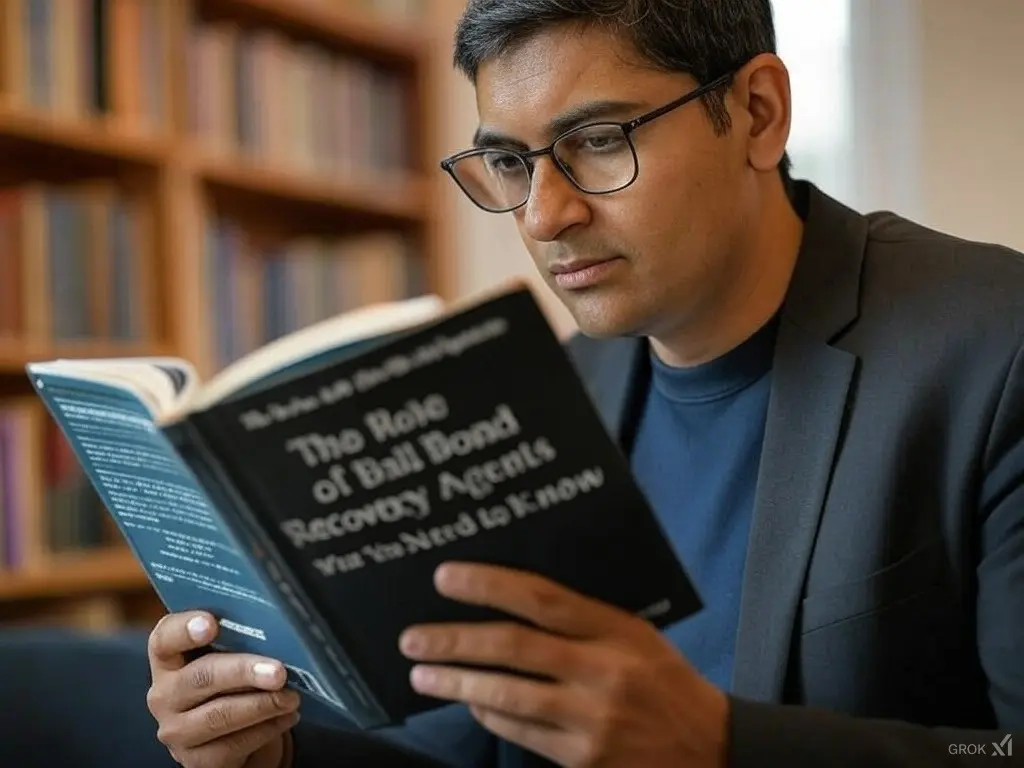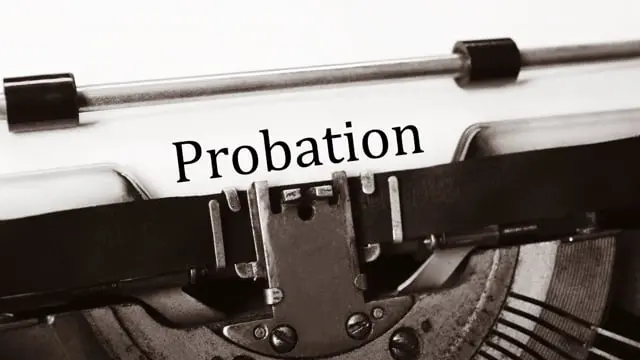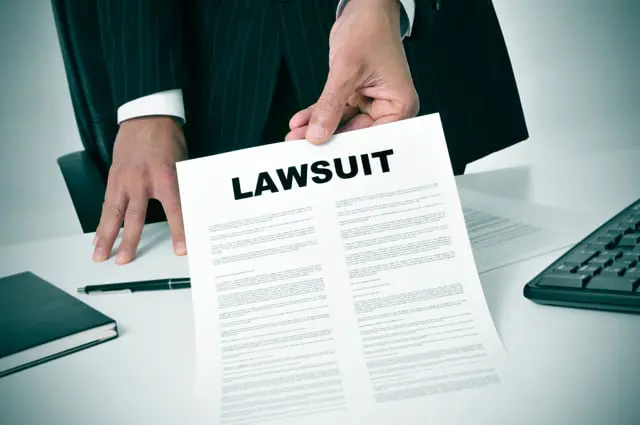Bail bond recovery agents, also known as fugitive recovery agents or bounty hunters, play a crucial role in the criminal justice system. These professionals work closely with bail bondsmen and law enforcement agencies to locate and apprehend individuals who have failed to appear in court after being released on bail. The complex world of bail bond recovery involves a unique set of skills, legal considerations, and ethical responsibilities that set it apart from traditional law enforcement.
The bail bond industry operates on the principle of providing financial assurance to the court that a defendant will appear for their scheduled court dates. When a defendant fails to show up, it triggers a series of events that often culminate in the involvement of a bail bond recovery agent. These agents are tasked with tracking down and returning the fugitive to custody, ensuring that the bail bond company doesn’t forfeit the full amount of the bond to the court.
The legal foundation for the work of bail bond recovery agents in the United States can be traced back to the 1872 Supreme Court case Taylor v. Taintor. This landmark decision established that those who provide bail bonds have the right to pursue and re-arrest defendants who have skipped bail without obtaining a warrant. This ruling continues to shape the legal landscape for bail recovery agents today, granting them unique powers that extend beyond those of ordinary citizens.
However, the authority of bail bond recovery agents is not unlimited. While they have significant leeway in pursuing fugitives, they must operate within the bounds of state and federal laws. Many states have implemented specific regulations governing the activities of bail recovery agents, including licensing requirements, training standards, and restrictions on the use of force. These regulations aim to strike a balance between the need for effective fugitive recovery and the protection of civil liberties.
One of the key aspects of a bail bond recovery agent’s job is conducting thorough investigations to locate fugitives. This process often involves a combination of traditional detective work and modern technological tools. Skip tracing techniques are frequently employed, which may include analyzing public records, conducting surveillance, and interviewing friends, family members, and associates of the fugitive. In the digital age, social media platforms and online databases have become invaluable resources for tracking down individuals who have absconded.
The relationship between bail bond recovery agents and law enforcement agencies is complex and varies by jurisdiction. In some areas, there is close cooperation between these two groups, with law enforcement providing valuable information and support to recovery agents. In other regions, the relationship may be more distant or even adversarial. Regardless of the local dynamics, bail bond recovery agents must be aware of the legal boundaries of their authority and work within the framework of the law.
One of the most challenging aspects of bail bond recovery is the potential for confrontation when apprehending a fugitive. Recovery agents must be prepared for a wide range of scenarios, from peaceful surrenders to potentially violent encounters. This necessitates extensive training in conflict de-escalation, self-defense, and the appropriate use of force. Many states require bail bond recovery agents to undergo specific training programs and maintain certifications to ensure they are equipped to handle these high-stress situations safely and legally.
The ethical considerations in bail bond recovery are numerous and complex. Recovery agents must balance their duty to apprehend fugitives with respect for individual rights and the potential impact on families and communities. This often requires making difficult decisions in the field, such as whether to pursue an arrest in a public place or in the presence of children. Ethical bail bond recovery agents prioritize safety and minimize collateral damage while fulfilling their professional obligations.
The financial aspects of bail bond recovery are a significant driving force in the industry. Bail bond companies stand to lose substantial sums of money when defendants fail to appear in court, creating a strong incentive to locate and return fugitives quickly. Recovery agents typically work on a commission basis, earning a percentage of the bond amount upon successful apprehension of a fugitive. This financial model can lead to aggressive pursuit tactics but also incentivizes efficiency and success in locating absconded defendants.
In recent years, there has been increased scrutiny of the bail bond industry and the role of recovery agents. Critics argue that the system disproportionately affects low-income individuals and communities of color, who may be more likely to rely on bail bonds for pretrial release. This has led to calls for bail reform in many jurisdictions, with some states implementing alternatives to cash bail or limiting the use of commercial bail bonds altogether. These reforms have significant implications for the future of bail bond recovery agents and the industry as a whole.
The technological advancements in recent years have dramatically changed the landscape of bail bond recovery. GPS tracking devices, facial recognition software, and sophisticated data analysis tools have enhanced the ability of recovery agents to locate and monitor fugitives. However, these technologies also raise important privacy concerns and legal questions about the extent to which they can be used in fugitive recovery operations.
One emerging trend in the field is the use of drones for surveillance and tracking. While this technology offers new possibilities for locating fugitives, it also presents regulatory challenges and potential privacy violations. As with many aspects of bail bond recovery, the use of drones must be carefully balanced against legal and ethical considerations.
The training and certification requirements for bail bond recovery agents vary widely across the United States. Some states have implemented rigorous licensing programs that include background checks, extensive training courses, and ongoing education requirements. Other states have minimal regulations or no specific requirements for bail recovery agents. This lack of uniformity has led to calls for national standards to ensure consistency in the qualifications and practices of recovery agents across state lines.
The role of women in bail bond recovery has been growing in recent years, challenging traditional perceptions of the industry as a male-dominated field. Female recovery agents often bring unique skills and perspectives to the job, particularly in situations involving female fugitives or sensitive family dynamics. As the industry evolves, diversity in all forms is becoming increasingly recognized as an asset in effective bail bond recovery operations.
International fugitive recovery presents a unique set of challenges for bail bond recovery agents. When a defendant flees the country, recovery agents must navigate complex international laws, extradition treaties, and diplomatic considerations. This often requires close cooperation with federal law enforcement agencies and foreign governments. The globalization of crime and the ease of international travel have made cross-border fugitive recovery an increasingly important aspect of the industry.
The psychological impact of working as a bail bond recovery agent is an often-overlooked aspect of the profession. The high-stress nature of the job, potential for dangerous confrontations, and ethical dilemmas faced in the field can take a toll on mental health. Many agencies and professional organizations are beginning to recognize the importance of providing mental health support and resources for recovery agents to address these challenges.
The portrayal of bail bond recovery agents in popular media has significantly influenced public perception of the profession. Television shows and movies often depict bounty hunters as lone wolves operating outside the law, which can lead to misconceptions about the reality of the job. Responsible bail bond recovery agents and industry organizations work to counter these stereotypes by emphasizing the professional, regulated nature of their work and their commitment to ethical practices.
The intersection of bail bond recovery and civil rights is an area of ongoing legal debate. While recovery agents have broad powers to apprehend fugitives, these powers must be exercised in a manner that respects constitutional protections against unreasonable search and seizure. Cases involving alleged civil rights violations by recovery agents have led to important legal precedents and refinements in industry practices.
The role of bail bond recovery agents in the broader criminal justice system extends beyond simply apprehending fugitives. Many recovery agents view their work as an important component of public safety, helping to ensure that individuals accused of crimes face justice and comply with court orders. Some argue that the bail bond system, including the role of recovery agents, provides an important incentive for defendants to appear in court and can reduce the burden on law enforcement agencies.
The COVID-19 pandemic has presented unique challenges for the bail bond recovery industry. Social distancing requirements, travel restrictions, and court closures have complicated the process of locating and apprehending fugitives. Recovery agents have had to adapt their practices to minimize health risks while still fulfilling their professional obligations. This has led to increased use of remote monitoring technologies and alternative methods of encouraging voluntary surrender.
The future of bail bond recovery is likely to be shaped by ongoing debates about criminal justice reform. As more jurisdictions explore alternatives to cash bail and pretrial detention, the role of commercial bail bonds and recovery agents may evolve. Some industry professionals are advocating for a more holistic approach to pretrial services, integrating recovery agents into broader support systems for defendants to encourage court appearance and compliance with release conditions.
The insurance industry plays a significant role in the world of bail bonds and recovery agents. Surety companies that underwrite bail bonds have a vested interest in minimizing their losses from forfeited bonds. This has led to increased collaboration between insurance companies, bail bond agencies, and recovery agents to develop more effective risk assessment tools and recovery strategies. The financial backing of insurance companies has also helped to professionalize the industry and provide a layer of accountability for bail bond operations.
The legal liability faced by bail bond recovery agents is a critical consideration in their work. While they have certain protections under the law when acting within the scope of their authority, recovery agents can face civil lawsuits or criminal charges if they exceed their legal bounds or use excessive force. Many agencies carry specialized liability insurance to protect against these risks, and rigorous training programs emphasize the importance of operating within legal and ethical guidelines.
The use of body cameras by bail bond recovery agents is becoming more common, mirroring trends in law enforcement. These devices can provide valuable evidence in cases of disputed arrests and help to ensure accountability. However, their use also raises privacy concerns and questions about data storage and access. As with many technological advancements in the field, the use of body cameras must be carefully balanced against legal and ethical considerations.
The role of bail bond recovery agents in addressing the issue of human trafficking has gained attention in recent years. Recovery agents’ skills in locating individuals and navigating complex criminal networks can be valuable in efforts to combat human trafficking. Some agencies have begun to specialize in this area, working closely with law enforcement and non-profit organizations to locate and rescue trafficking victims.
The impact of bail bond recovery on families and communities is an important consideration in the ongoing debate about the industry. Critics argue that aggressive recovery tactics can destabilize families and communities, particularly in low-income areas. Proponents counter that effective recovery operations help to maintain the integrity of the justice system and can provide opportunities for intervention and support for individuals struggling with substance abuse or mental health issues.
As the bail bond industry continues to evolve, so too does the role of recovery agents. Many professionals in the field are expanding their services to include pretrial supervision, electronic monitoring, and support services for defendants. This holistic approach aims to reduce the need for fugitive recovery by helping defendants comply with court orders and address underlying issues that may contribute to criminal behavior.
The legal and ethical landscape of bail bond recovery is constantly changing, requiring agents to stay informed about new laws, court decisions, and industry best practices. Continuing education and professional development are essential for recovery agents to maintain their effectiveness and operate within the bounds of the law. Many states now require ongoing training and certification renewal to ensure that recovery agents remain up-to-date on the latest legal and procedural developments.
In conclusion, the role of bail bond recovery agents is a complex and evolving aspect of the criminal justice system. These professionals navigate a challenging landscape of legal, ethical, and practical considerations in their work to apprehend fugitives and uphold the integrity of the bail bond system. As debates about criminal justice reform continue, the future of bail bond recovery is likely to see further changes and adaptations. However, the fundamental need to ensure that defendants appear for their court dates and face justice remains a constant, underscoring the ongoing importance of skilled and responsible bail bond recovery agents in the American legal system.
Website citations:
- https://www.deltabail.com/understanding-bail/bail-bond-agents-and-agencies/role-and-responsibilities-of-bail-bond-agents/
- https://scholarworks.gvsu.edu/cgi/viewcontent.cgi?article=1009&context=scjpeerpubs
- https://www.prisonpolicy.org/reports/bail.html
- https://dol.wa.gov/sites/default/files/2023-06/692400.pdf
- https://aaaabailbonds.com/2024/02/07/a-deep-dive-into-the-bail-bond-industry-operations-and-ethics
- https://www.indeed.com/career-advice/finding-a-job/how-to-become-fugitive-recovery-agent
- https://www.thebailboys.com/are-bail-enforcement-agents-law-enforcement/
- https://en.wikipedia.org/wiki/Bail_bondsman
- https://www.palmettosurety.com/2024/06/bail-enforcement-agency/
- https://www.ncsl.org/civil-and-criminal-justice/recovery-agents
- https://www.americanprogress.org/article/fact-sheet-profit-over-people/
- https://www.findlaw.com/criminal/criminal-procedure/the-role-of-a-bail-bondsman.html
- https://www.xinsurance.com/blog/bounty-hunters-vs-bail-bond-agents-whats-the-difference/
- https://www.nolo.com/legal-encyclopedia/bail-bonds-bounty-hunters.html
- https://attorneys.media/bail-fugitive-recovery-person-2/
- https://www.beehivebailbonds.com/code-of-ethics/
- https://balboabailbonds.com/blog/what-authority-do-bail-bond-agents-have/
- https://www.brennancenter.org/our-work/analysis-opinion/how-profit-shapes-bail-bond-system
- https://www.brennancenter.org/our-work/research-reports/challenges-advancing-bail-reform
- https://bailproject.org/learn/were-not-bail-bondsmen/
- https://www.aclu.org/issues/smart-justice/bail-reform
- https://www.reddit.com/r/IAmA/comments/1lgsyt/iama_we_are_bail_enforrcement_agents_fugitive/
- https://givingcompass.org/article/the-problems-created-by-the-bail-bond-industry
- https://csimt.gov/2023/06/15/bounty-hunter-reform-to-protect-the-public/
- https://bountyhunters.uslegal.com
- https://www.americanprogress.org/article/profit-over-people/
- https://vault.com/professions/bounty-hunters/outlook
- https://www.thebailboys.com/what-do-bail-agents-provide/
- https://www.palmettosurety.com/2023/10/bounty-hunters-vs-bail-bond-agents/
- https://nafra.net/faq









